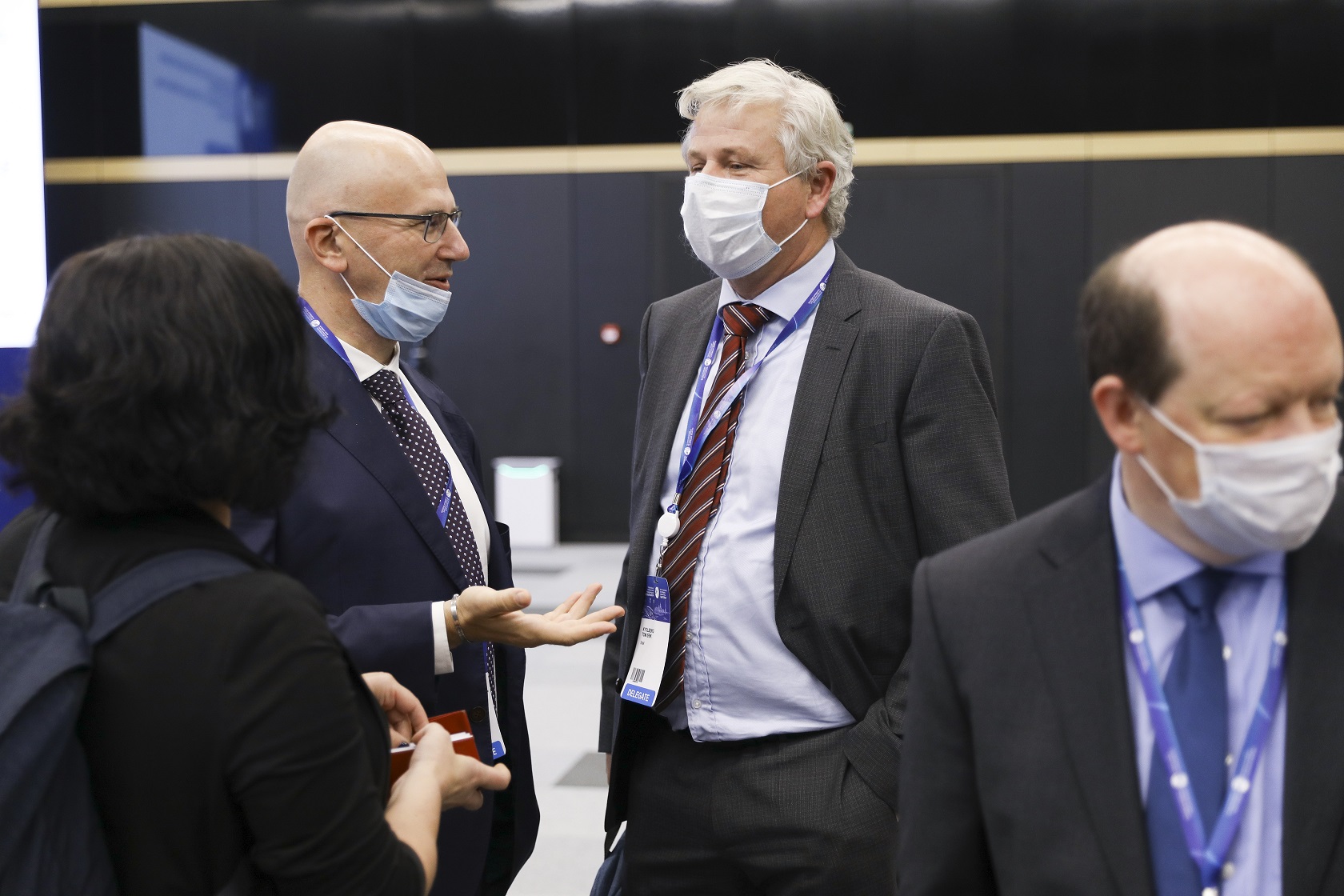
Energy transformation is not a way to be followed by everyone.
The international conference OIL AND GAS SECTOR CONTRIBUTION TO THE SUSTAINABLE DEVELOPMENT GOALS took place of Day 2 of the 10th St. Petersburg International Gas Forum.
The tone of the discussion was given by the Global Climate Forum scheduled for late October 2021 in Glasgow. It is going to cover Earth’s ecological issues, and naturally, SPIGF has been mainly dedicated to energy transformation that the industry is ready to set off to.
According to Tor Fjaeran, President of the World Petroleum Council, today we should take climatic change as the major threat for humans. “We’ve done a lot but this is not a place to stop yet. There is so much to do for our carbon footprint to lower,” he said.
Didier Holleaux, Executive Vice President and Board Member at ENGIE, reminded the audience that Europe is looking forward to total decarbonization by 2050. Countries of the Old World are going to take on alternative energy sources like hydrogen, which can be produced almost anywhere in the European Union. “We’re going through the global transformation and are indeed living in the energy transition age. This is a revolution on the short term that the humanity has never encountered before. Anyway, if we don’t manage it, we are going to be confronted with some much more grave challenges,” Mr. Holleaux remarked. He also predicted that gas is going to be of utter importance for the energy industry in the coming years.
Laszlo Varro, Vice President at Shell, agreed on that one and announced that energy transformation and natural gas are tightly associated. “Let’s consider Brazil that invests a lot into the afflux energy. You can’t procure extra afflux if you need more fuel, but you can acquire more gas to recover the energy shortage. The same can be said about Germany and its solar power plants,” Mr. Varro explained.
Sergey Vakulenko, Head of Strategy and Innovation Department at Gazprom Neft, stated he wasn’t sure that energy transformation would go as fast and efficiently as everybody expects it to be. “Top analytical agencies like McKinsey are considering a scenario according to which the world countries won’t reach an agreement and will follow their ways as if nothing has happened or with some slight adjustments, and that is a positive option. Energy transition with total decarbonization by 2050 is a regular scenario, though,” Sergey Vakulenko said.
At the same time, the expert is definitely not happy about the world’s doing nothing to reduce green gas emissions and solve the climate issues, as “it is going to cost us so much more later”. Mr. Vakulenko added that Gazprom is taking much effort to minimize harmful emissions and expects to reduce its carbon footprint by 30% by the year of 2030 (as compared to the figures of 2019).
Natalya Tretyak, First Vice President at Gazprombank, spoke on other challenges of the energy transformation period. “Today we see many banks and major investors taking a radical path and refusing to finance some industry sectors like the coal one. There is a risk that some sectors will cease to exist. We don’t really expect denial of financial assistance to carbon-intensive industry sectors to work. Our refusal to any of such companies can harm not only their employees, but to entire regions and their citizens,” she explained.
Sergey Vakulenko supported this point and remarked that for many countries gas was the best clean energy alternative. “It is less smoky than coal or animal manure. Analytical agencies predict that despite energy transformation the demand for oil and gas will remain quite high, and as far as I am concerned, recommending investors against placing money in oil and gas is mere madness,” he added.
The last part of the discussion brought up the topic of the future and the next generations. Representatives of Lukoil shared that they endeavored to train specialists for the company and even built a training center of their own in Kogalym (the Khanty-Mansi Autonomous Region of Russia). Artur Gataullin, Gazprom Global Account Director at Schlumberger, and his colleague from Gazprom Neft corporate university Ilya Dementyev explained that the most advanced technologies currently sit with the petroleum sector. “According to Google, our supercomputer is on the world’s Top 10. Machine learning, cloud technologies, artificial intelligence – we’ve been using all of these in the oil and gas industry,” Artur Galiullin stated. Ilya Dementyev admitted it and announced that Gazprom was the major Russian recruiter of specialists from IT and related sectors. “Graduates wishing to work with the most cutting-edge technologies are just unaware that it is Gazprom where they should apply to,” he resumed.